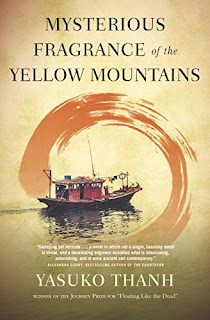 Jessica Anya Blau's books include The Summer of Naked Swim Parties, Drinking Closer to Home, and The Wonder Bread Summer.
Jessica Anya Blau's books include The Summer of Naked Swim Parties, Drinking Closer to Home, and The Wonder Bread Summer.Her new novel is The Trouble with Lexie.
Not so long ago I asked Blau about what she was reading. Her reply:
Currently I’m on page 151 of Dodgers by Bill Beverly. This is a road-story that travels from Compton to Wisconsin, but it’s not a caper and it’s not picaresque. The protagonist, 15-year-old East, has been sent out of his neighborhood for the first time on a mission to kill a man. Yes, East is in a gang and intimately knows the life of guns, drugs, murder and mayhem. But he’s got a tender soul; he’s watchful and sensitive. He worries about hisVisit Jessica Anya Blau's website, Facebook page, and Twitter perch.mother. He wonders about his younger brother, who’s also on this mission and who knows more about how to use a gun than East wants to realize. By the time you’re reading these words I’ll be long finished with this book. Dodgers is a one-nighter. Two-nighter at the most. The only reason I haven’t finished it yet is because my half-blind, fishy-smelling dog is in diapers and needs to be tended to hourly and, well, there’s eating, writing, and sleeping to be done, too.
Coffee with a Canine: Jessica Anya Blau and Pippa.
The Page 69 Test: The Trouble with Lexie.
My Book, The Movie: The Trouble with Lexie.
--Marshal Zeringue





















































